DAVAO DE ORO, March 22, 2022 – SAAD Program National Director Myer Mula visited several Dabawenyo farmers’ associations (FAs) in his series of field visits throughout the country reiterating the need to create community-based enterprises (CBEs) for the sustainability of SAAD’s production projects.
“Ang importante rito, meron na tayong enterprise development. Kailangan ito ng ating mga asosasyon, (What’s important is that we have enterprise development. This is what’s needed among our associations,)” Dir. Mula said.
CBEs focus on the improvement of a community rather than the individual. Locally organized FAs usually take on this role after turning into a self-sustaining organization. Production and value-adding play a crucial part in making these FAs able to stand on their own.
“Ipakita natin sa next generation na ganito ang agriculture. I-sustain po natin. Hindi po ito humihinto sa atin lang. Meron tayong tinutumbok, tinatahak,” Dir. Mula added.
(Let’s show the next generation that this is agriculture. Let’s sustain it. These [pertaining to the projects] will not stop with us. We are aiming for something, on a journey to be sustainable).
As SAAD’s Phase 1 of implementation comes to a close this year, strengthening existing beneficiaries’ production projects is paramount.
In Davao de Oro, among 60 FA-beneficiaries for 2021, 10% have transitioned to CBEs. Most FAs are in production stages, especially in crops, where the turnout for banana and abaca are in 1-1.5 years.
This year, SAAD 11 allocated Php 47 million for production projects in Davao de Oro. Through supplementing production in both crop and livestock such as plantlets, animals, and agri tools, the program is hopeful for more FAs to transition to CBEs before the year ends.
Emerging CBEs in Davao de Oro
While waiting for formal CBE establishment, many beneficiaries in the province sustain and earn from the projects as micro and small enterprises. This effort is geared at strengthening the enterprise capabilities of the project to cater to the demands of the community. CBE establishment will usher the farmers’ association into marketing and linkages which are essential for project sustainability.
BASIFA in Monkayo
Barangay San Isidro Farmers Association (BASIFA) in Monkayo, one of Dir. Mula’s stops, is a beneficiary of SAAD 11’s upgraded native chicken worth Php 205,510. They received 240 upgraded native chickens alongside feeds and biologics (antibiotics, dewormer, multivitamins), which purpose is for egg, chick, and meat production.
Not a month after, the chickens have started to lay eggs. They sold it by tray, at Php 8.00-10.00 each, depending on size.
After almost 8 months, the group with 20 members gathered a total of 10,809 eggs, providing them Php 97,281.
“Diha jud mi nakarecover sa amoang mga gasto, kanang sa itlog. Namaligya mi ug piso pud,” (That’s where we recovered by selling eggs. We also sold chicks) Doresa Leopoldo, BASIFA chairperson, related.
This year, SAAD allocated an incubator for the FA to boost chick production. Chicks fetch a higher price in the local market, ranging from Php 75 to Php 250. In BASIFA’s case, they price theirs at Php 75 to attract more customers.
To date, the FA hatched 269 out of 359 eggs incubated, providing them more than Php 20,175 income.
“Nituon jud ko ug mga pamaagi para aning mga manok, nag-Youtube ko, nangutana sa mga kaila sa munisipyo. Kanang pagpa-vaccine, kabalo na ko,” Leopoldo added.
I’ve learned ways of chicken raising, I watch Youtube, and ask from acquaintances in the municipality. I already know how to vaccinate.”
BASIFA has 167 chickens in the brood, 140 of which are hens, the remaining 27, cocks.
The group printed out tarpaulins to advertise their products. They set up one in the barangay and another in the municipal proper of Monkayo.
SIFA in Nabunturan
Meanwhile, 20 members of San Isidro Farmers Association (SIFA) in Nabunturan, has kickstarted its enterprising efforts by selling eggs, chicks, and chicken. SIFA, a recipient of the 2021 upgraded native chicken production project (Php 3.3 million) alongside BASIFA, chose to go the route of strengthening the brood before disposal and dispersal. This meant that most of the eggs harvested were hatched, then groomed for live weight selling or positioned for the brood’s next cycle.
As of March 2022, the association already earned Php 37,150.
Half of the income stemmed from selling chicken by live weight, at Php 200-250 per kilogram (kg). Majority of this stock came from hatched incubated eggs. At two months old, the FA will start disposing of the brood. To date, the FA has sold 49 head at Php 250.00/kg, 13 head at Php 200/kg.
When Dir. Mula visited the area, he commended the FA for its ingenuity in making sure the project becomes sustainable. The association took the initiative to buy an incubator to produce chicks.
This year, SAAD 11 will grant an incubator including a generator to the FA in addition to their existing one.
Kiokmay and Aguinaldo FAs in Laak
In Laak, Dir. Mula visited 2 associations, Kiokmay Farmers Association and Aguinaldo Farmers Association, encouraging the FAs to make the most out of SAAD’s interventions.
Both FAs with 20 members each were given upgraded goat (Php 380,000 each) and mallard duck (Php 125,336 each) production projects.
Aguinaldo Farmers Association (AGFA) suffered losses out of the two animal-based interventions that SAAD previously distributed. For upgraded goat production, the FA experienced mortalities after a long rainy season affecting the health of the ruminants. The mallard ducks, on the other hand, were individually distributed to members after feed supply ran out.
Dir. Mula encouraged AGFA to start rebuilding its herd, get ample technical assistance with pregnant does, and plant protein-heavy grasses like Napier, trichanthera, etc. for pasture.
For neighboring FA, Kiokmay Farmers Association, it’s another story.
The upgraded goats distributed by the program have started flourishing, alongside the mallard ducks. The herd is slowly building up in number, evidenced by a couple of kids and a number of pregnant does. The mallard ducks, on the other hand, have already produced eggs, but were halted by the poultry’s natural changing of feathers. The FA is hopeful to start enterprising efforts this year.
Fertilizer and Pesticide Authority (FPA)
Alongside his visits, Dir. Mula also highlighted the need for a balanced fertilization strategy (BFS) among farmers. The Fertilizer and Pesticide Authority (FPA) in the region, led by Regional Head Mariz Napalit, held on-site briefers in managing fertilizers and pesticides used in the area.
“Dili jud mawala ang fertilizer ug pesticide to develop kung unsa man nga crops ang naa sa atoa. Kinahanglan nato nga balance siya para mag-work,” she encouraged.
(Fertilizers and pesticides are always present for us to develop whatever crops we have. But we need balance [of synthetic and organic] to make this work.)
BFS will commence after the identification of all legitimate fertilizer suppliers in the province. ###
Writer: James Brian R. Flaga, SAAD RPMSO 11 Information Officer
Source: DA-SAAD Davao de Oro

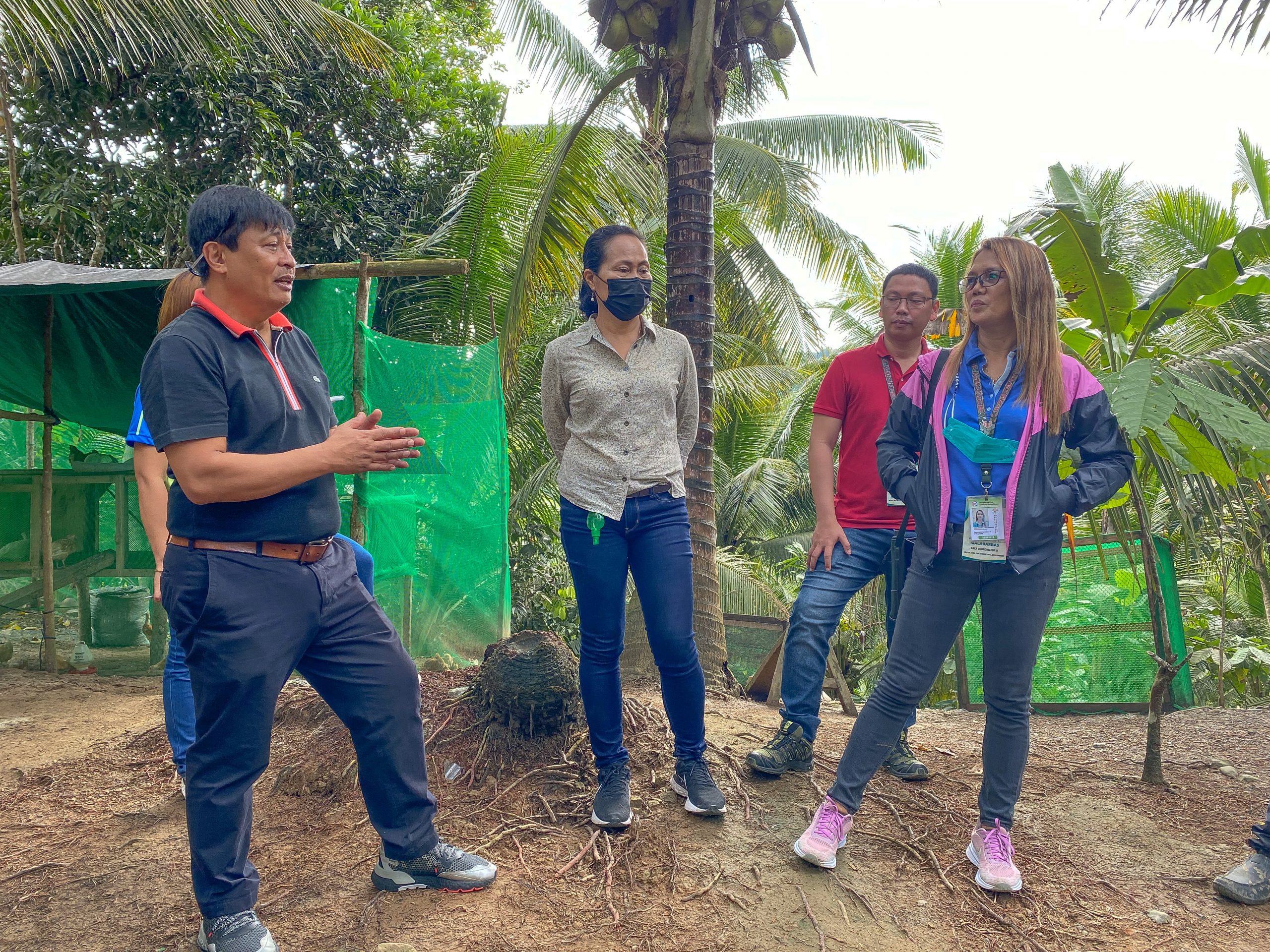
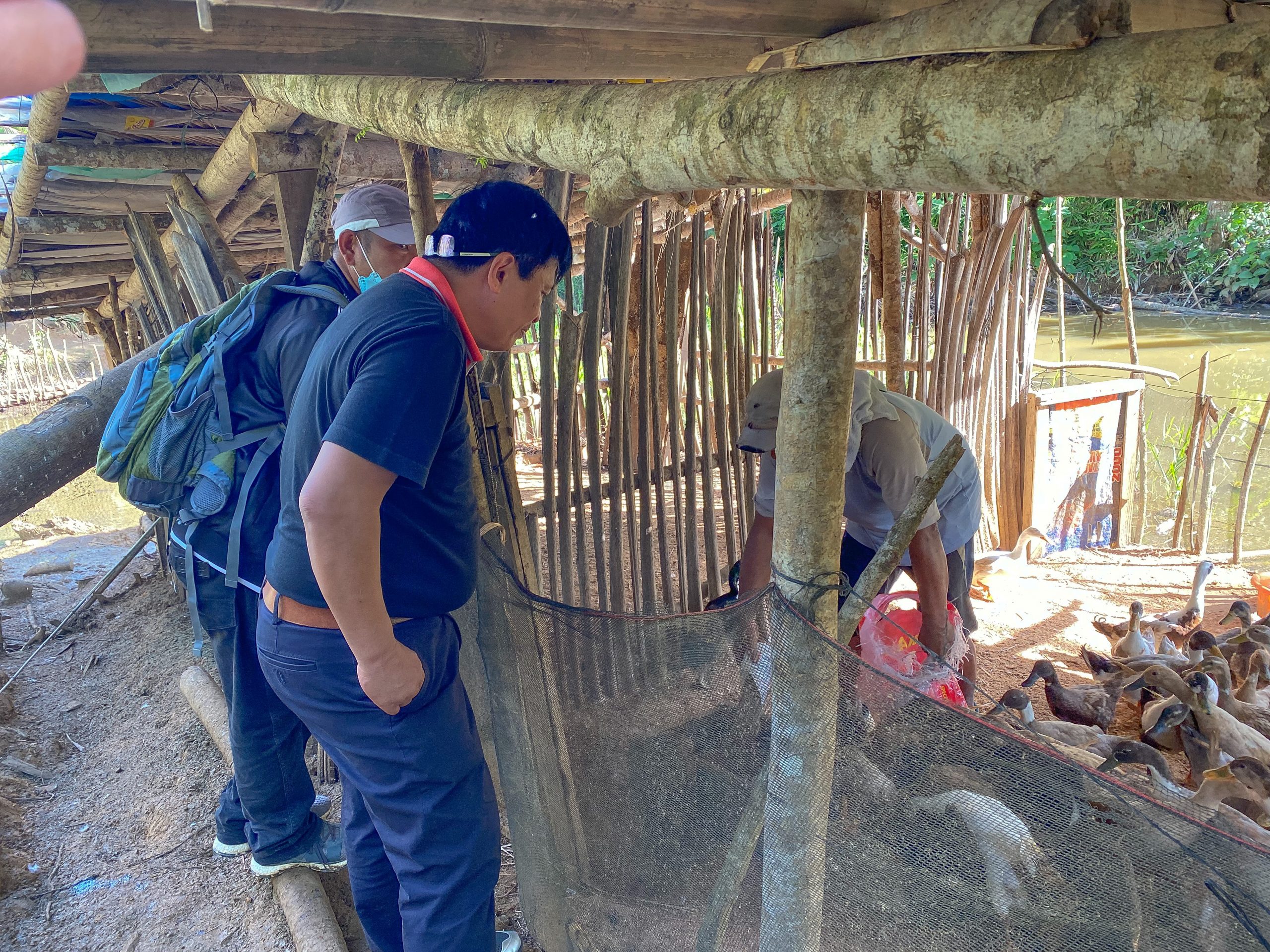
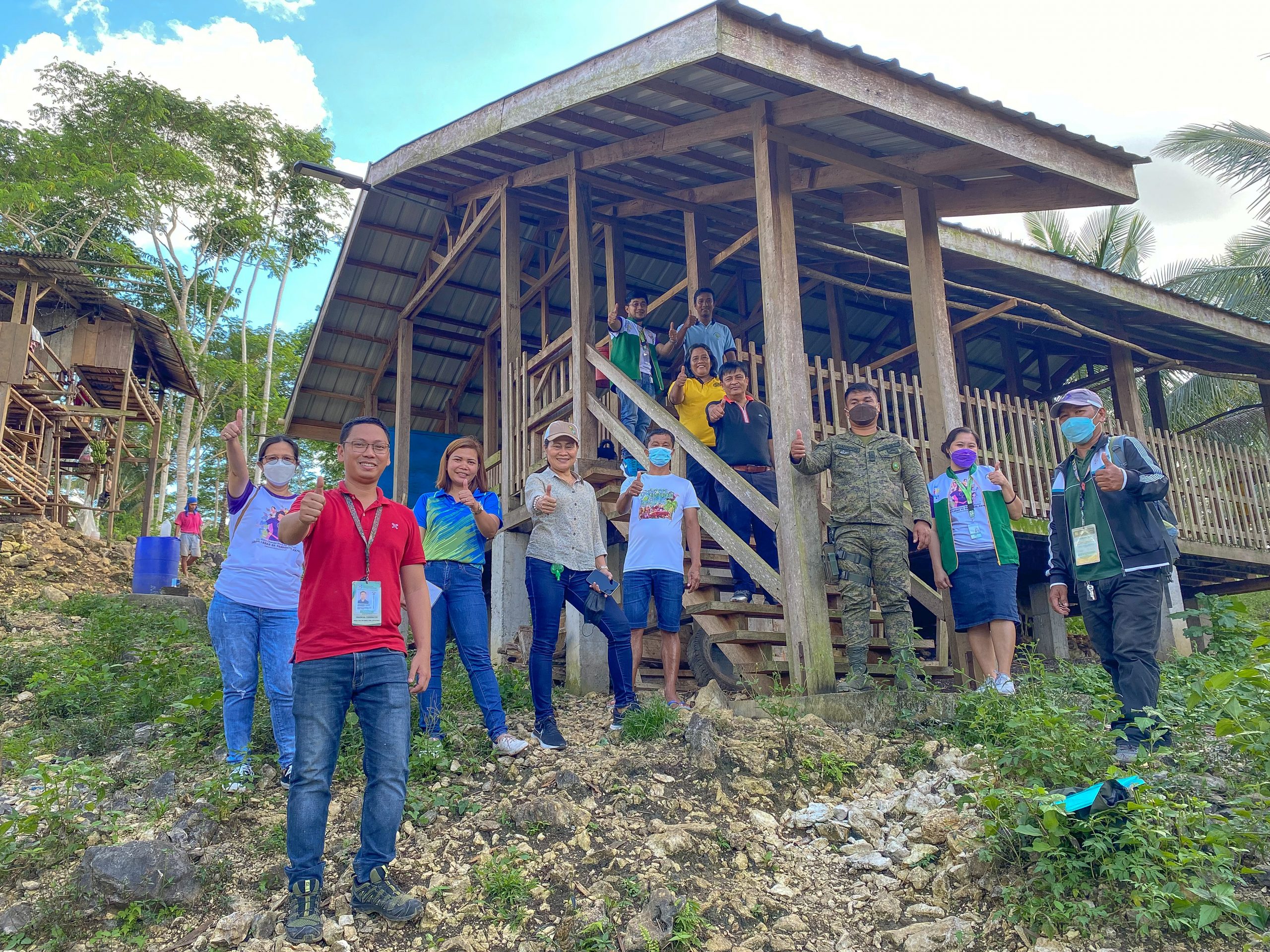
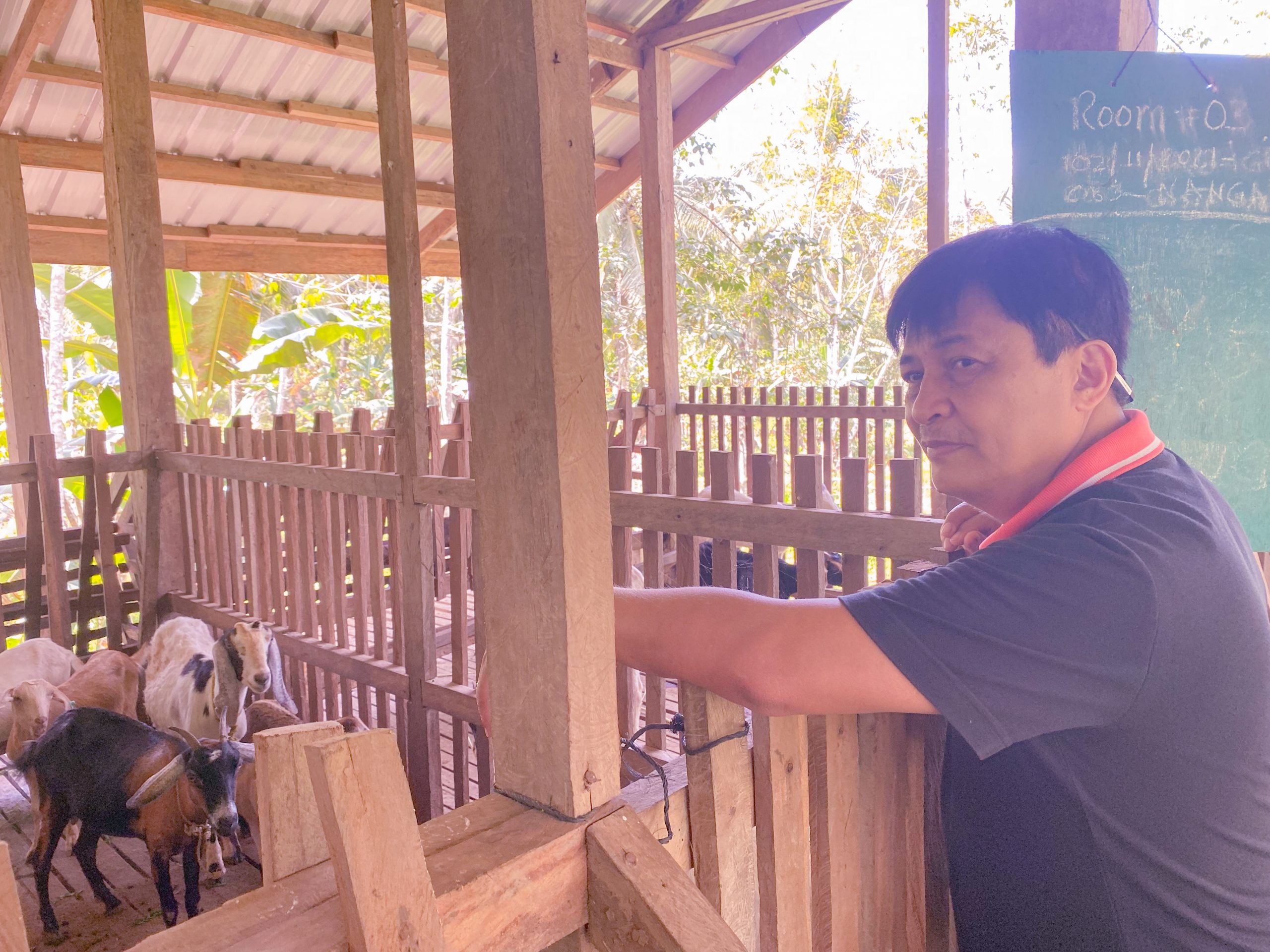
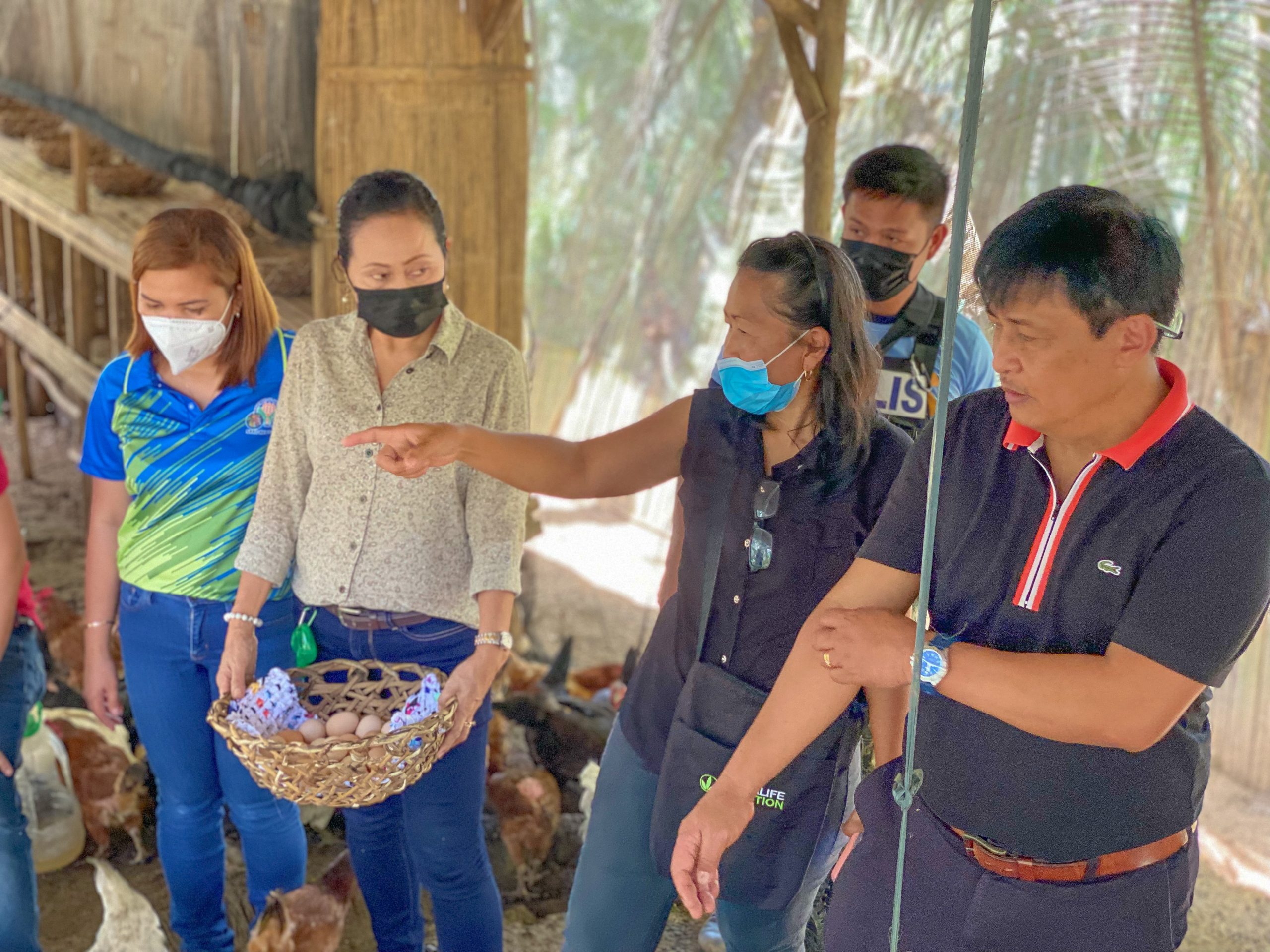
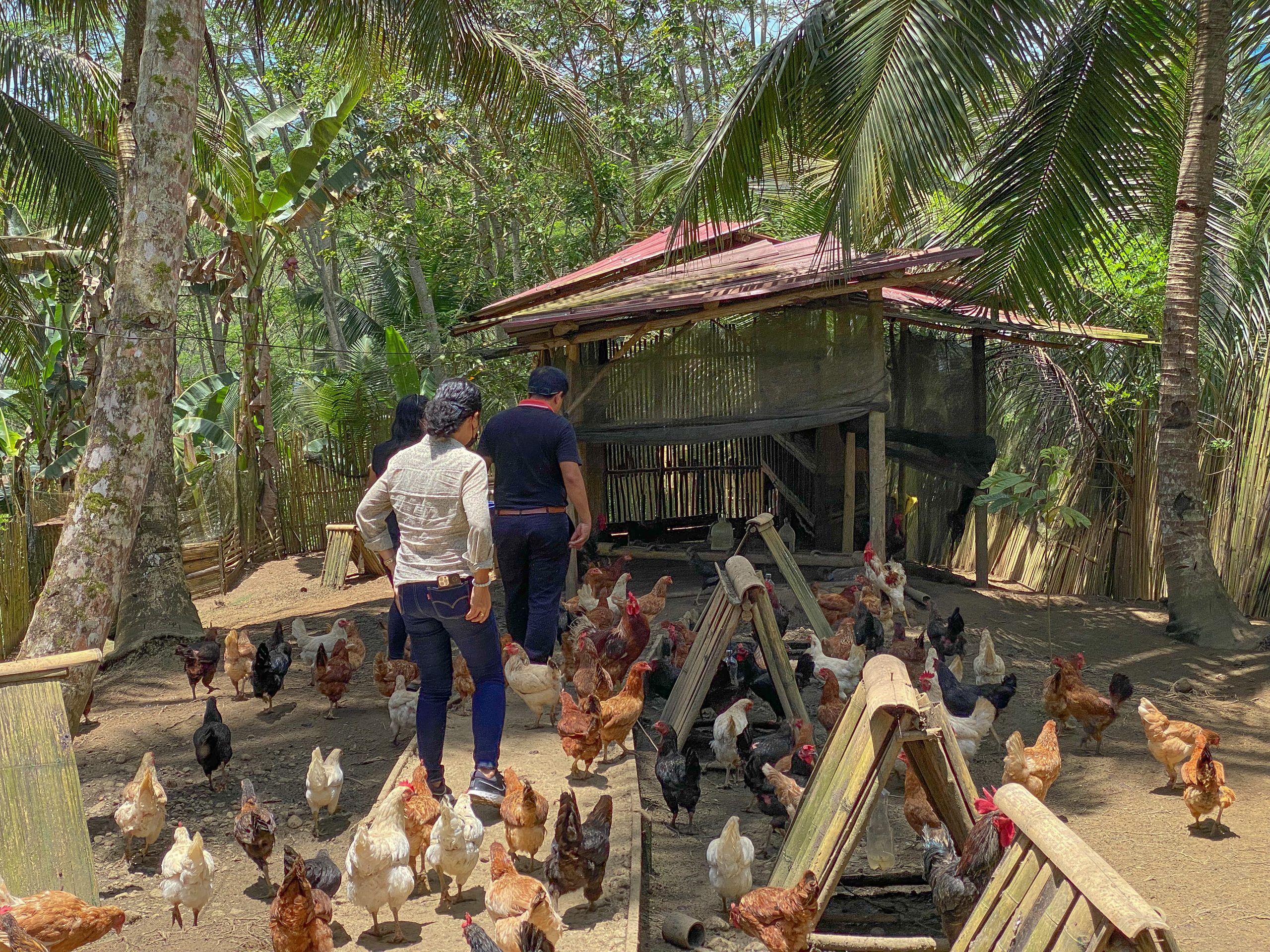
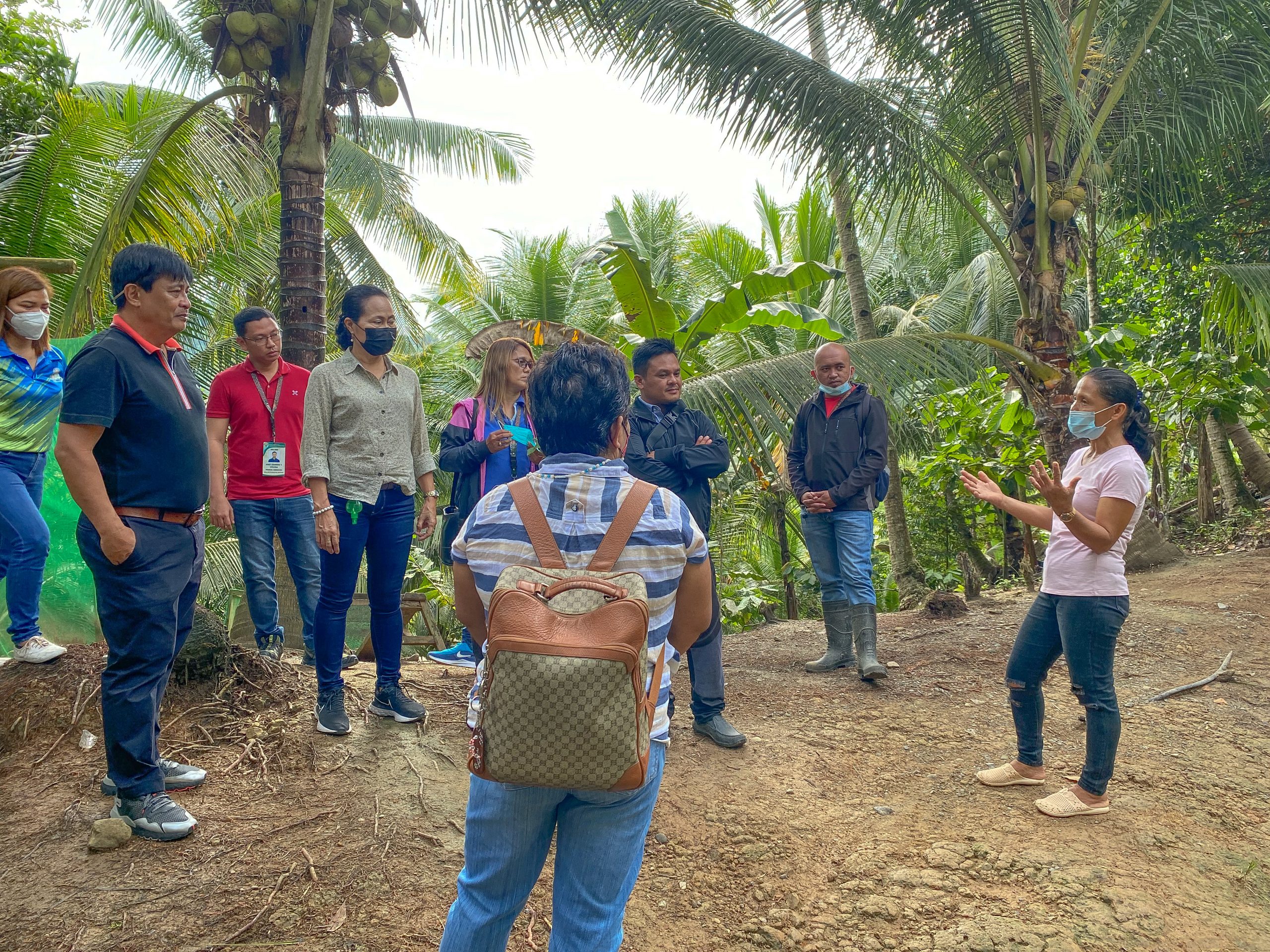
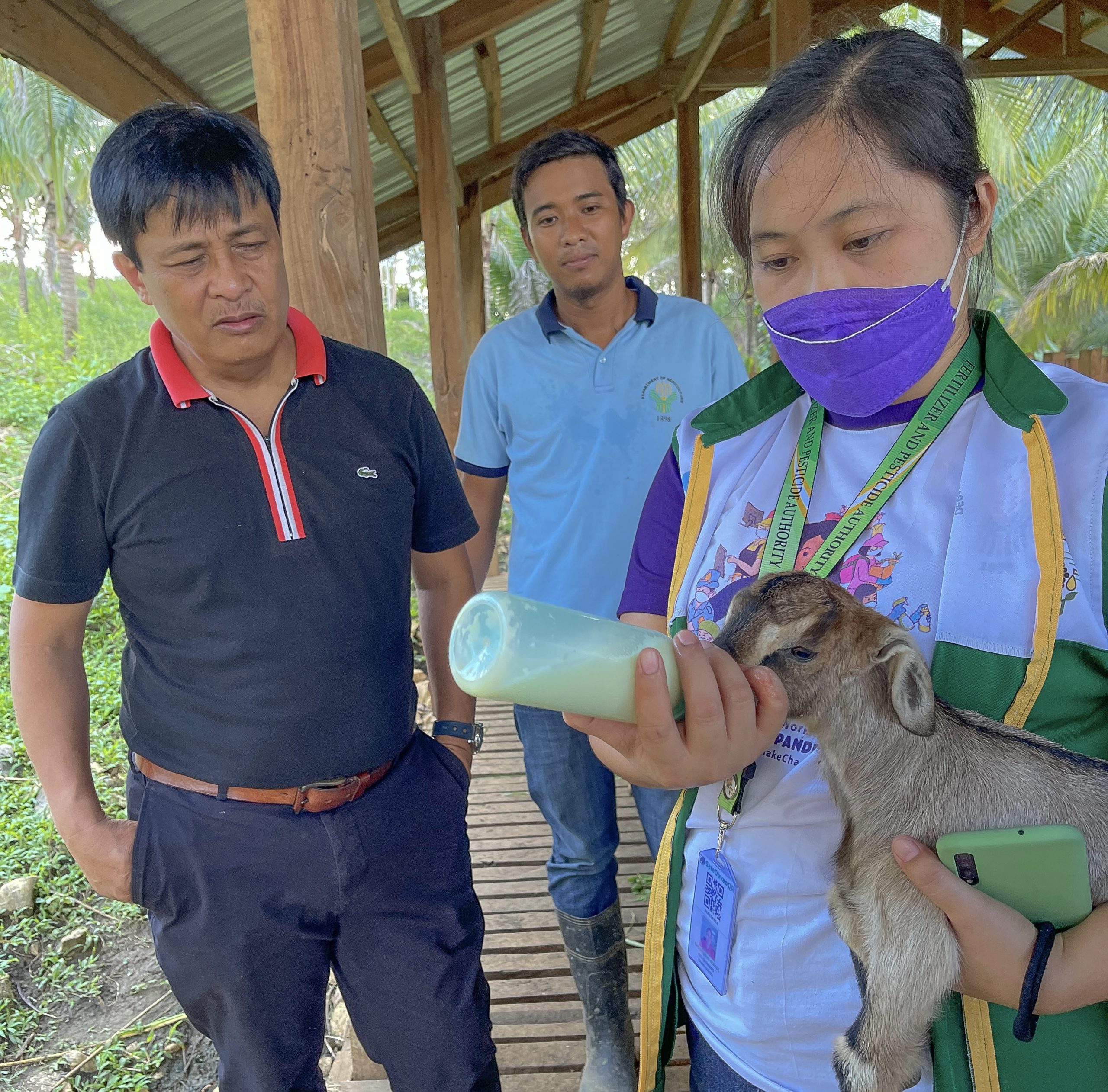
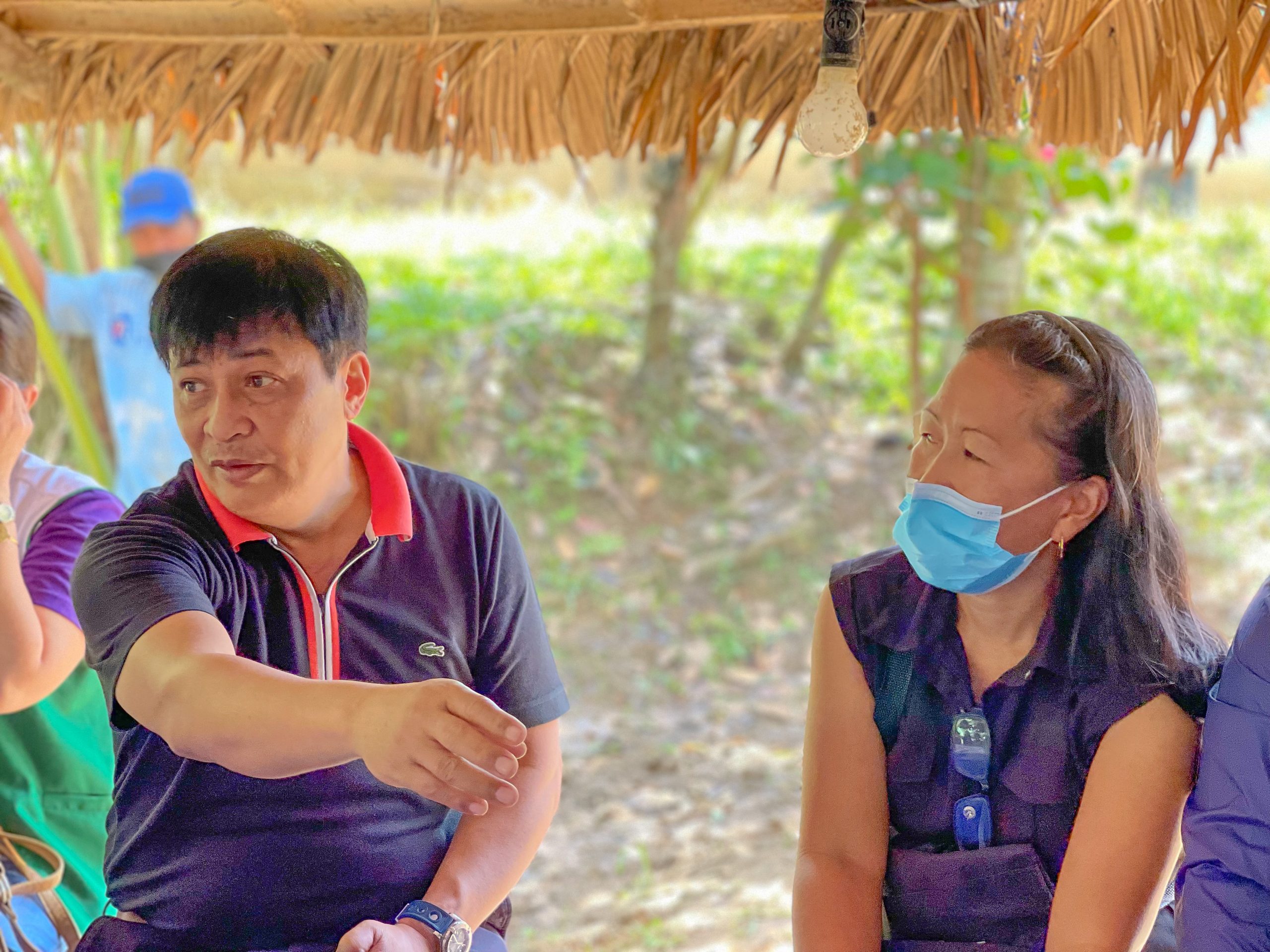
Comments (0)